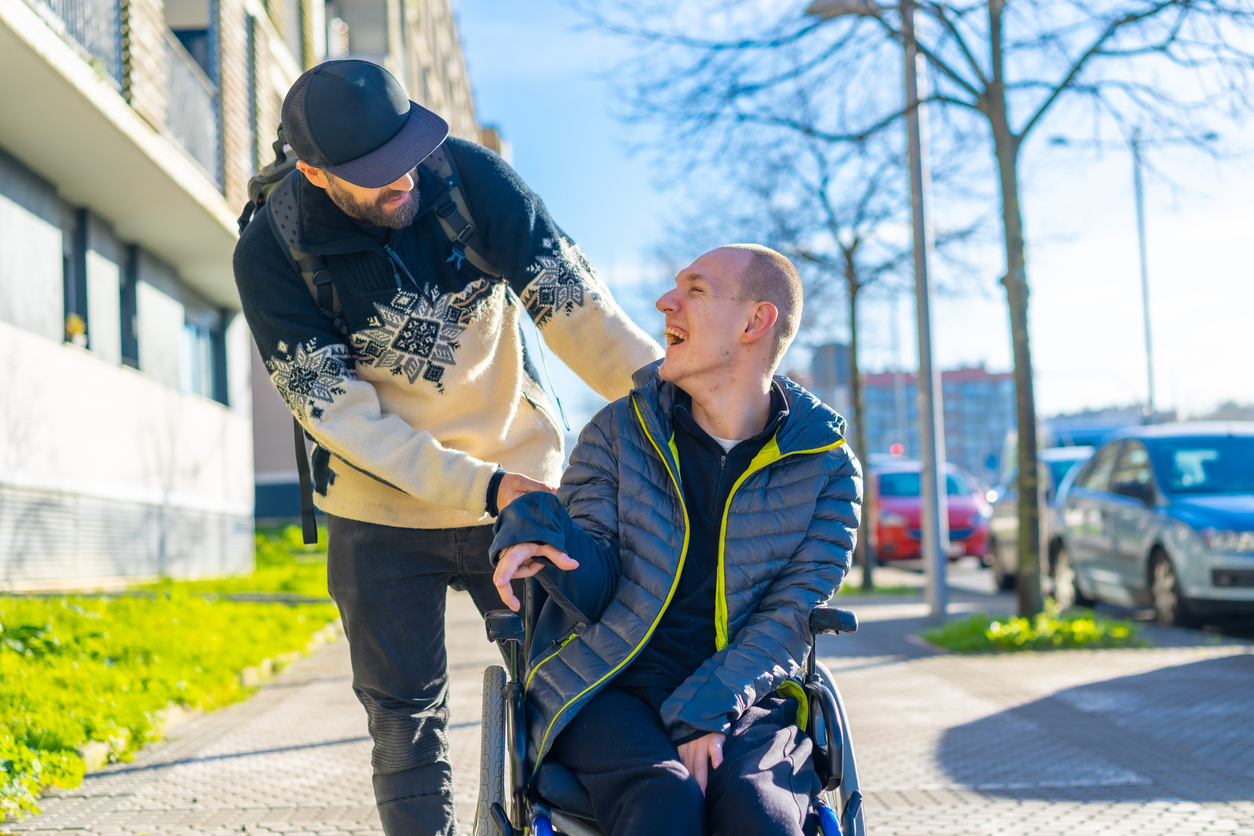Self-care is vitally important for all people, whether one has a disability or not. Finding a healthy balance between life, family, and work while living with a disability can be overwhelming at times. To maintain peace of mind, health, and overall wellness, it’s essential to make time to take care of yourself.
With Valentine’s Day approaching, we encourage you to focus on these self-care tips.
What is Self-Care?
Self-care is a term that we hear a lot, but what does it actually mean? What does it look like? Taking care of self means different things to different people, but at its core it means
loving yourself with the same compassion, care, and kindness that we afford our loved ones. All too often, we put ourselves at the bottom of the priority list, caring for other people and responsibilities before looking after our own wellbeing.
There are many reasons we do this; sometimes we don’t feel like we have enough time to carve out for ourselves, or we don’t want to delegate responsibilities to other people in order to take time for ourselves, and/or sometimes we feel self-care is the same as self-indulgence (when in fact the opposite is true) and resist putting ourselves first.
There is a lot of information out there about ways to practice self-care, but not all of it is applicable to people with disabilities. Taking a bath or going out to eat, for example, may be considered pleasurable to people without disabilities, but for some people with disabilities these things may be time-consuming and stressful.
The key component is this: whatever you do for self-care, it must be additive to your life. Find ways to enrich your mind, body, and spirit with your self-care activities.
Ways to Practice Self-Care
Self-care is actually the opposite of self-indulgence. If we want to be fully present for our loved ones and the responsibilities we have in life, we must care for ourselves first. The example of “put your own oxygen mask on before assisting others” is often used in this context. We can’t be there for others, show up for our responsibilities, and care for our loved ones if we are spent, stressed, and exhausted.
Self-care and pampering yourself are not mutually inclusive. Sure, sometimes self-care may take the form of treating yourself to something special, but self-care is more about making space for ourselves, taking a ‘time-out’ from the hectic pace of life, and checking in with ourselves to be sure we aren’t overstressed or burned out.
Keep a Routine: a consistent routine is a form of self-care, because it means we aren’t short-changing ourselves, overlooking or ignoring the things that keep us healthy and well. Routines help us keep stress at bay.
Take Breaks: for people with disabilities daily tasks can be tiring. Instead of pushing yourself to the limit, take breaks. Rest. Sit in the sunshine for a little while. Read or listen to a good book. Set an alarm if you need the reminder, and work in short breaks during your day to recharge and reset.
Get Cozy: some people are most comfortable in their wheelchair, but sometimes curling up in a soft chair with a warm blanket during the day gives an extra boost of comfort and rest.
Spend Time with Friends: how often do we say to friends ‘we’ll have to get together soon!’ and then that time never seems to come? Making the time for the people in your life who make you laugh and lift your spirits is a great way to practice self-care. Schedule some time with friends each month! This gives you something to look forward to and ensures too much time doesn’t go by without getting together!
Say ‘No’ More: this may sound like an odd one, but too often we commit to too many things or find ourselves agreeing to events or things that exhaust us instead of leaving us feeling enriched. If in your gut you don’t want to go to something, or do something that isn’t necessary, it’s okay to gracefully say no. This leaves more time for self-care and for doing the things you love.
Take Care of Yourself: while eating healthy foods, getting enough sleep, and keeping fit may sound more like chores than self-care, they are also ways to care for your body that will leave you feeling healthy, rested, and refreshed. Taking all prescribed medications is another way to care for yourself. It’s a way of showing yourself respect, and keeping yourself healthy and well.
Practice Mindfulness: mindfulness practices don’t need to be done in a yoga studio, or sitting on a mountaintop; they can be done anywhere. Mindfulness means taking stock of yourself and how you’re doing mentally, emotionally, and physically. When we are super busy, we don’t take time to think about how we’re actually doing. Mindfulness means being self-aware, listening to your body, and taking time during the day to simply
be.
Start a “Self-Care Sunday” Routine: don’t trust yourself to consistently make time for self-care? You’re not alone! It’s helpful to make one day a week a ‘self-care’ day, and Sundays are usually a good choice as we typically have fewer obligations over the weekend. Make a list during the week of the things you will do to care for yourself on Sundays, and stick to it until this becomes your routine.
Join the Thrive Community!
Searching for another way to practice self-care? Join our Thrive community! Our
Thrive Community Facebook Group is a private space for any person with a disability, as well as caregivers and healthcare providers that touch their lives. Our purpose is to provide a safe, educational space for group members to ask every question, connect with their peers, and empower each other through communication and connection. Our conversations are led by incredible individuals who themselves are living and thriving.
For more enlightening resources, information, and discussion, join the
Enemeez® Thrive Community today!
Sources:
https://www.forbes.com/sites/payout/2017/09/19/practicing-self-care-is-important-10-easy-habits-to-get-you-started/#4aff4fa3283a
https://themighty.com/2018/09/self-care-disability/
https://www.wheelchairrapunzel.com/blog/2019/2/22/12-disability-self-care-tips-for-my-fellow-disabled-babes 












